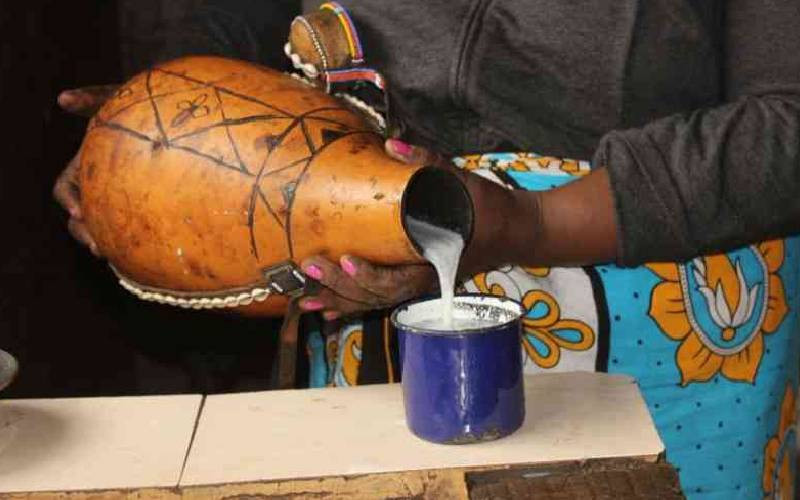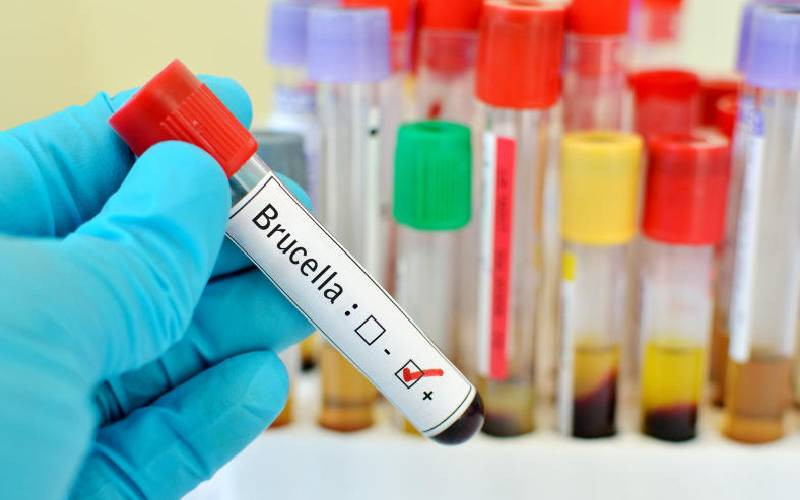
Many of us experiencing discomfort in our privates or "down there" as commonly known, often find it hard to discuss it, even with our medics.
One such issue is haemorrhoids - a common condition that, is awkwardly confusing despite being treatable.
Dr Naftaly Ngugi Gitau, a medical doctor at Kiambu Level 5 Hospital, explains that haemorrhoids occur when veins in the lower part of the rectum and anus become swollen. While sometimes painless, they can bleed and cause significant discomfort.
"During my period of practice, I see a patient suffering from the condition every two days," he says.
According to the World Health Organization (WHO), haemorrhoids affect about 50 per cent of people worldwide at some point in their lives. The prevalence increases with age, with an estimated 50 per cent of adults over 50 experiencing haemorrhoids. "Hemorrhoids are classified as internal or external, depending on their location relative to the dentate line in the anal canal. Internal haemorrhoids are graded from 1 to 4 based on size and protrusion," Dr Ngugi explains.
Grade 1 haemorrhoids are small, non-protruding haemorrhoids that may bleed. Grade 2 ones prolapse during bowel movements but return on their own, while Grade 3 prolapse and require manual repositioning. However, Grade 4 haemorrhoids are permanently prolapsed. External haemorrhoids form in an area rich in nerve endings, making them generally more painful.
Dr Ngugi notes that about 40 per cent of patients with haemorrhoids don't experience symptoms.
"When symptoms occur, they may include fresh blood in stool, pain, anal itching, a sense of fullness, mucus discharge, and poor bowel control," he says.
- Why scrolling in the loo is harming your health
Keep Reading
Research shows that women are disproportionately affected by haemorrhoids, particularly during menstruation and pregnancy.
A study published in the International Journal of Women's Health found that up to 85 per cent of pregnant women experience haemorrhoids, especially in the third trimester.
Dr Ferdy Mukudi, an obstetrician-gynaecologist, explains, "During pregnancy, the growing uterus puts pressure on the pelvic veins, slowing blood return from the lower body. This, combined with increased blood volume and hormonal changes that relax blood vessels, can lead to haemorrhoid formation."
During menstruation, hormone fluctuations can cause water retention and bloating, which may exacerbate existing haemorrhoids or trigger new ones.
A study in the Journal of Midwifery and Women's Health found that up to 30 per cent of women report haemorrhoid symptoms during their menstrual cycle.
A 2019 study published in the American Journal of Gastroenterology found that individuals with a family history of haemorrhoids are about three times more likely to develop the condition themselves.
Dr Mukudi notes, "While lifestyle factors play a significant role, our genetic makeup can predispose us to weaker connective tissue in the anal area, making haemorrhoid formation more likely."
Dr Ngugi explains some of the factors that can increase the likelihood of developing symptomatic haemorrhoids are chronic constipation or diarrhea, prolonged sitting, straining during bowel movements, pregnancy, obesity and a low-fibre diet.
To reduce the risk of developing haemorrhoids, the doctor further recommends taking plenty of fluids, a high-fibre diet, developing good bowel habits, avoiding prolonged sitting and straining and exercising regularly.
 The Standard Group Plc is a multi-media organization with investments in media
platforms spanning newspaper print
operations, television, radio broadcasting, digital and online services. The
Standard Group is recognized as a
leading multi-media house in Kenya with a key influence in matters of national
and international interest.
The Standard Group Plc is a multi-media organization with investments in media
platforms spanning newspaper print
operations, television, radio broadcasting, digital and online services. The
Standard Group is recognized as a
leading multi-media house in Kenya with a key influence in matters of national
and international interest.











